BBC Countryfile Magazine is joining forces with The Outdoor Guide, Keep Britain Tidy, the RSPCA and many others to launch the Litter Heroes Campaign. It’s easy to get involved and makes a massive difference to your local area – and you. So why not help clean up the countryside, make friends and get fit?
Here is our guide to our new litter picking campaign, explaining what it is and how you can get involved.
Litter facts
- Around 122 tons of cigarette butts and cigarette-related litter is dropped every day across the UK.
- 744 items of litter are found per 100 metres of beach on average.
- Black bags full of household rubbish account for 63% of all fly-tipping
- 1.3 million pieces of rubbish are dropped on UK roads every weekend. A third of motorists admit to littering while driving.
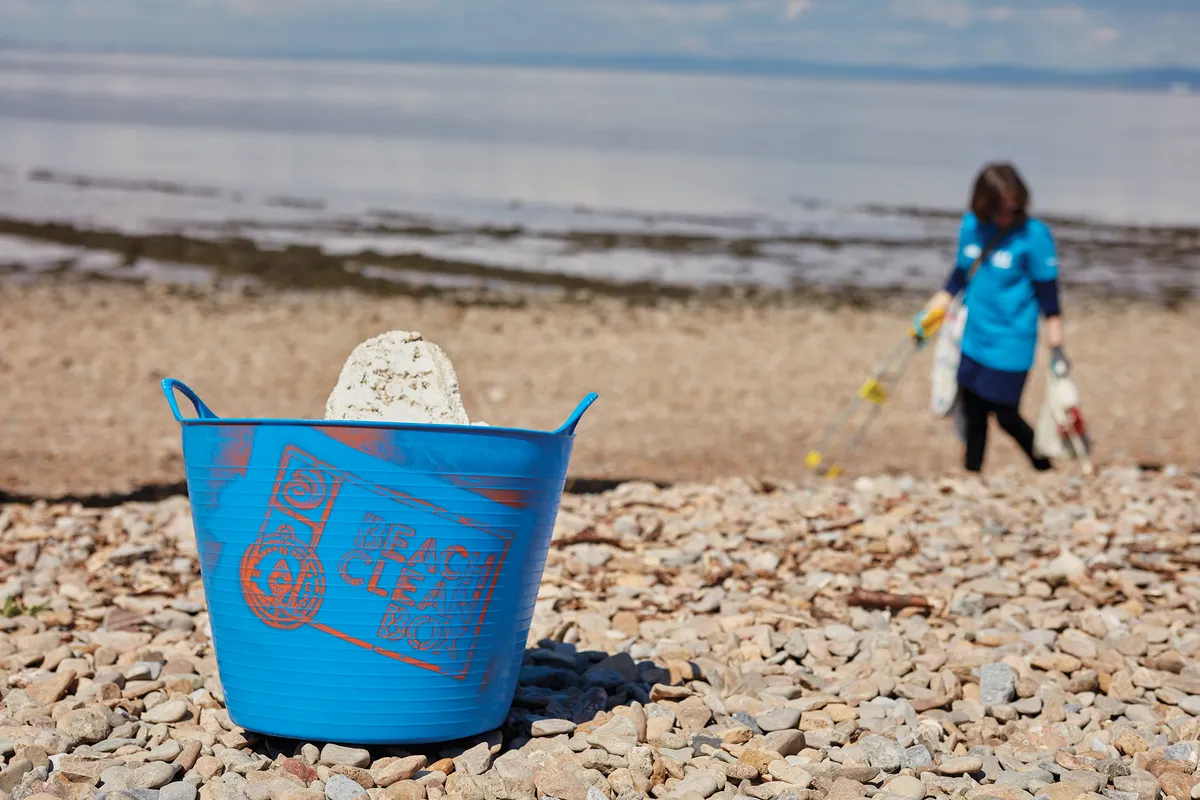
It becomes addictive. Scanning the pebbly expanses for alien materials to grab and put in my litter bag, I find a plastic bottle, sweet wrappers, innumerable plastic sticks from cotton-wool buds, cigarette filters, crisp packets and enough polystyrene fragments to float a battleship.
I look along the line of my fellow litter-pickers from BBC Countryfile Magazine, sweeping this beach in Clevedon in North Somerset, and am impelled to show off my finds. As we compare hauls, I’m envious of the sheet of bubble wrap and energy-drink cans collected by one colleague. Our litter-picking day is becoming competitive. More seasoned pickers from the Clevedon Pier and Heritage Trust and the local community seem to have really got their eye in and are finding tiny bits of plastic in the area I thought I’d just swept clear. I need to up my game. But when I pass a local walking her toddlers on the seafront and she thanks me profusely for cleaning “our beach”, I do feel like a litter hero.
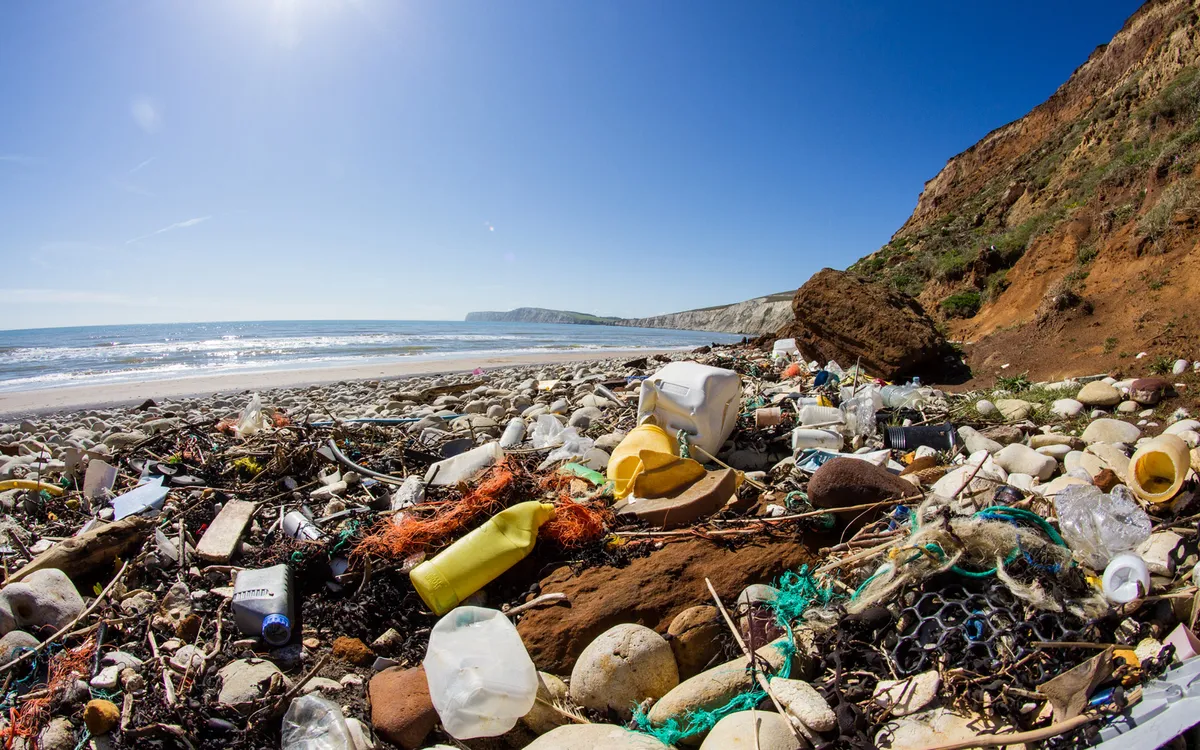
In May, the BBC Countryfile Magazine team joined forces with Clevedon Pier and Heritage Trust and litter-pickers from the local community to start our journey to become litter heroes. Litter and pollution are subjects we’ve covered many times in these pages and it’s the one issue we receive most emails and letters about.
Litter is a depressing problem in our towns, cities and countryside – and it’s a growing one. Most of us love our wild coasts and beautiful landscapes, but so often they are blighted by thoughtlessly discarded plastic bottles, cans, dog-poo bags and even piles of fly-tipping. The hedgerows of mid-Wales are becoming as well known for their microwaves as they are for redstarts.
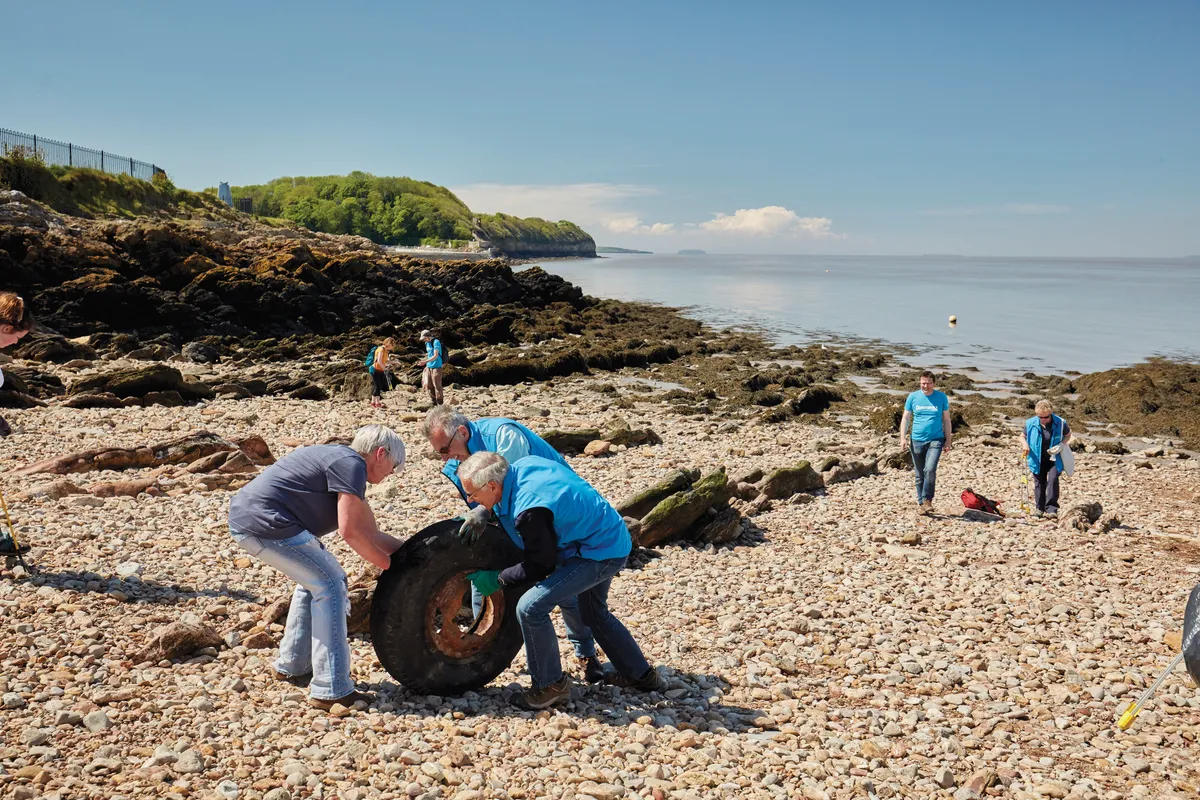
But it’s not just the eyesore. Litter, especially plastic, is a menace to wildlife and our own health (think dog-poo bags). The RSPCA reports 7,000 incidents every year of animals becoming ill through eating or becoming trapped in bits of plastic. Many of our beaches are strewn with rubbish either jettisoned from boats or flushed into the sea through the sewer system. Turtles, fish and seabird chicks have been found suffocated with microplastic, and some seabird nests – especially those of gannets – are increasingly constructed from dangerous man-made waste rather than natural materials. I’ve seen streams near Bristol choked with plastic bags and cans.
In addition, an area degraded by rubbish becomes less visited, footpaths become neglected and, says Campaign to Protect Rural England (CPRE), can lead to the land being bought for development.
Tips for a safe litter-picking adventure
- Don’t pick up needles.
- Use strong gloves and/or a litter grabber.
- Apply sun cream before you start (a couple of us were burnt on our beach adventure).
- If picking on a beach, remember the tides – never endanger yourself.
- Large pieces of litter can become waterlogged and surprisingly heavy. Be careful lifting pieces of metal etc (we struggled with a wheel that had become filled with silt and stones).
Wonderful community
So when The Outdoor Guide and Julia Bradbury got in touch to ask whether we would like to join a campaign to help tackle the problem, we jumped at the chance (for a full list of partners, see page 49). Julia says “We are excited to be working with BBC Countryfile Magazine and other passionate partners to share the inspirational stories from this wonderful community of litter heroes.”
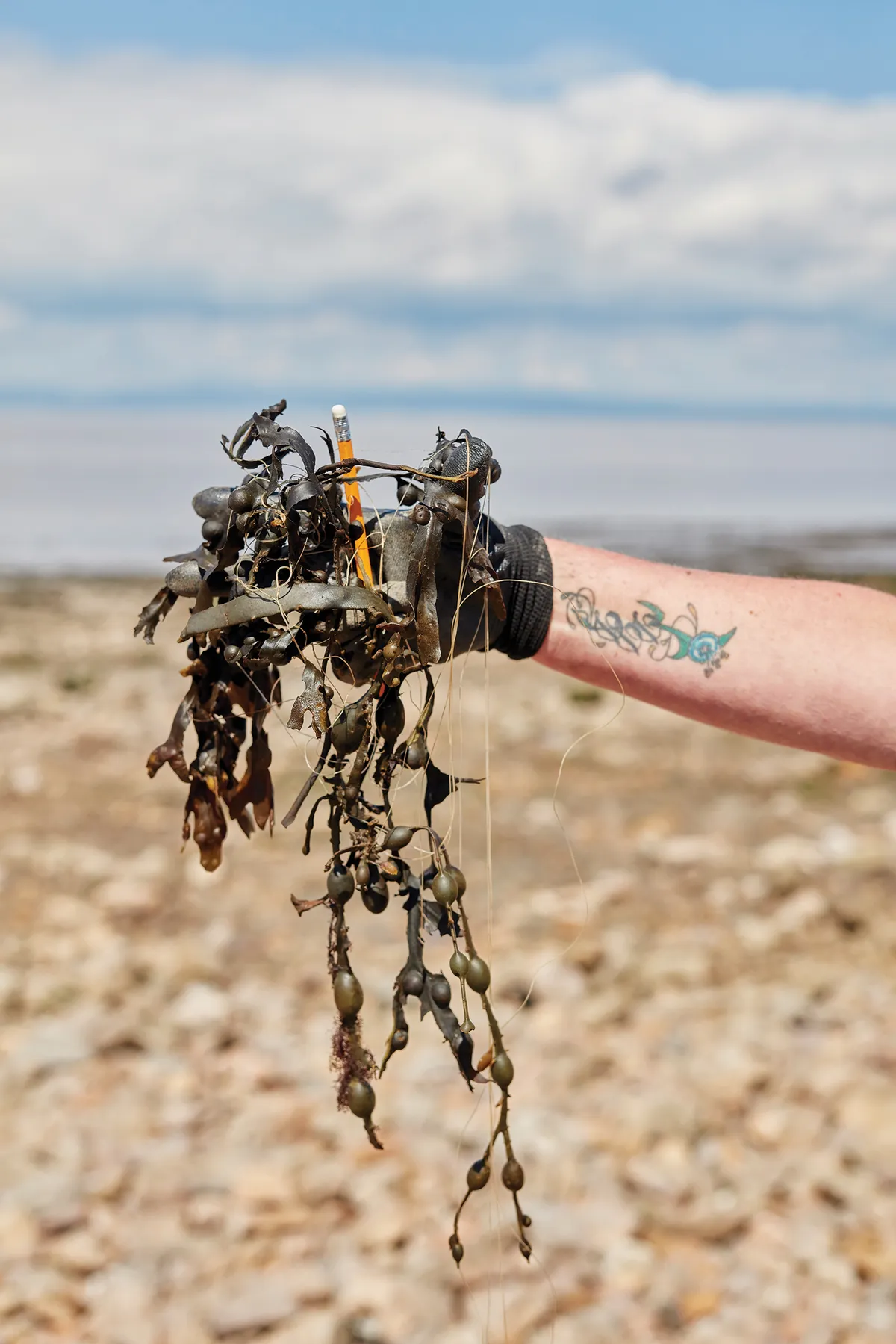
The idea is simple: those of us who love walking and exploring the countryside are the ones best placed to take care of it. We can’t rely on councils and other organisations to clear our footpaths and beaches – they don’t have the financial resources. And the government-led public service campaigns of my youth are no longer (who remembers “Don’t be a litterbug!”?).
Allison Ogden–Newton, CEO of Keep Britain Tidy, says: “Any litter dropped in a place of natural beauty is a problem – it shines like a beacon as something unnatural, and begs the question ‘Who is going to pick it up?’ That’s why we are delighted that The Outdoor Guide is reaching out to its networks and offering handy bags so people can collect litter when they out walking in remote locations.”
As Julia Bradbury says: ‘These bags are lightweight and washable, just keep them in your rucksack, so no matter where you walk you can become a litter hero!” Sign up by following the instructions opposite.
If you’re like me, you’ll have a regular local walking route. Mine takes me through a field and woodland to the River Usk on the edge of Abergavenny. It’s popular with many townsfolk, some of whom drop cans, bottles and sweet wrappers. I’ve been picking up litter here for a year now and at first it was grim. But over time I’ve removed most of the detritus and now it feels so much wilder and more beautiful. I’ve made a difference and I feel really good about it.
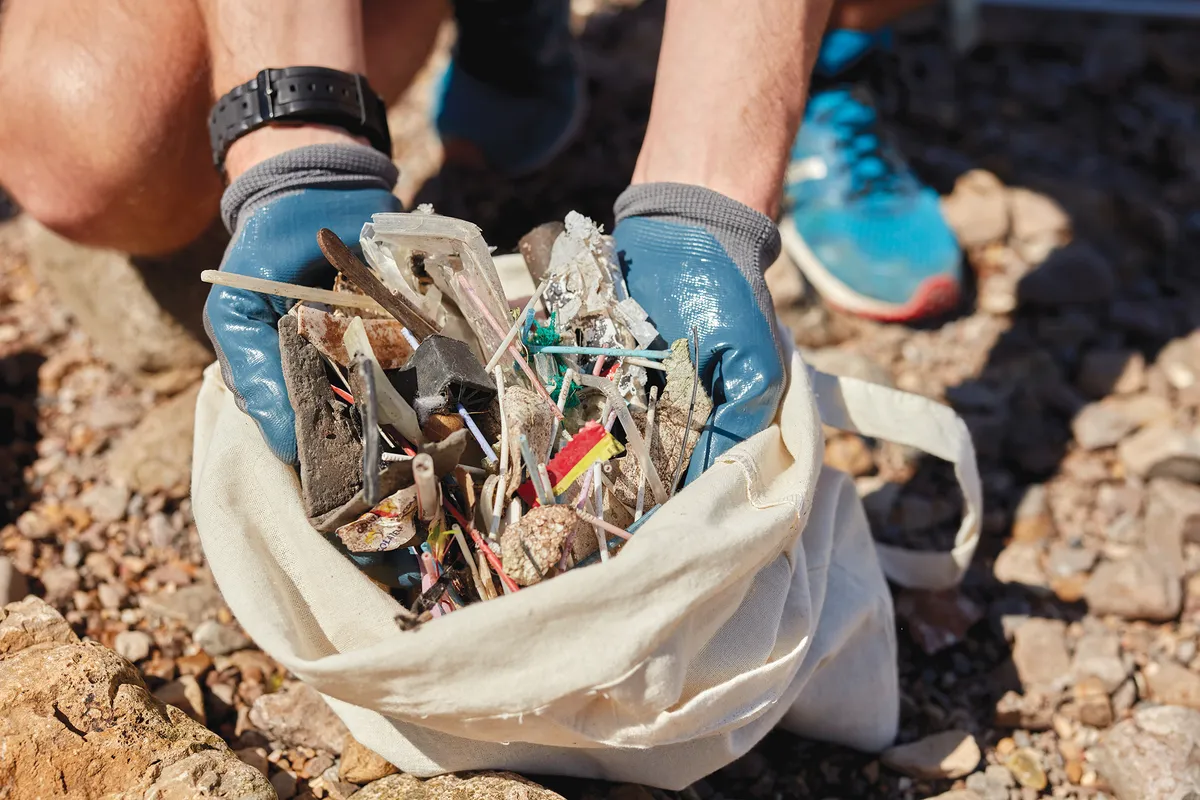
And it’s the latter sense that really came through on our day in Clevedon. With volunteers from the town and members of Clevedon Pier and Heritage Trust, we quickly began working as a team. The very act of working together quickly dispelled any shyness (I failed my O level in small talk!) and it was really interesting to hear about the litter and pollution issues in the town. Some very curious items have been washed up on the beach there – many that are unmentionable
in a family magazine.
How long does it take to break down?
- Orange peel up to 2 years
- Cigarette butts up to 2 years
- Plastic bags 10–20 years
- Tin cans 50 years
- Aluminium cans 80–100 years
- Plastic bottles can last forever
- Glass does not degrade
The power of community
I met Denise (aka Den), who runs a Facebook group for the town and tries to help people deal with local issues, and Phil Curme, the chairman of the trust, whose role takes him from dealing with multi-million-pound lottery grants to rolling car tyres out of the estuary mud. Phil revealed how the trust had been so successful in engaging the local community that they had made the historic pier financially viable (with a new café and visitor centre). And now they could turn their attention to the beaches and seafront – a powerful force for good in the town.
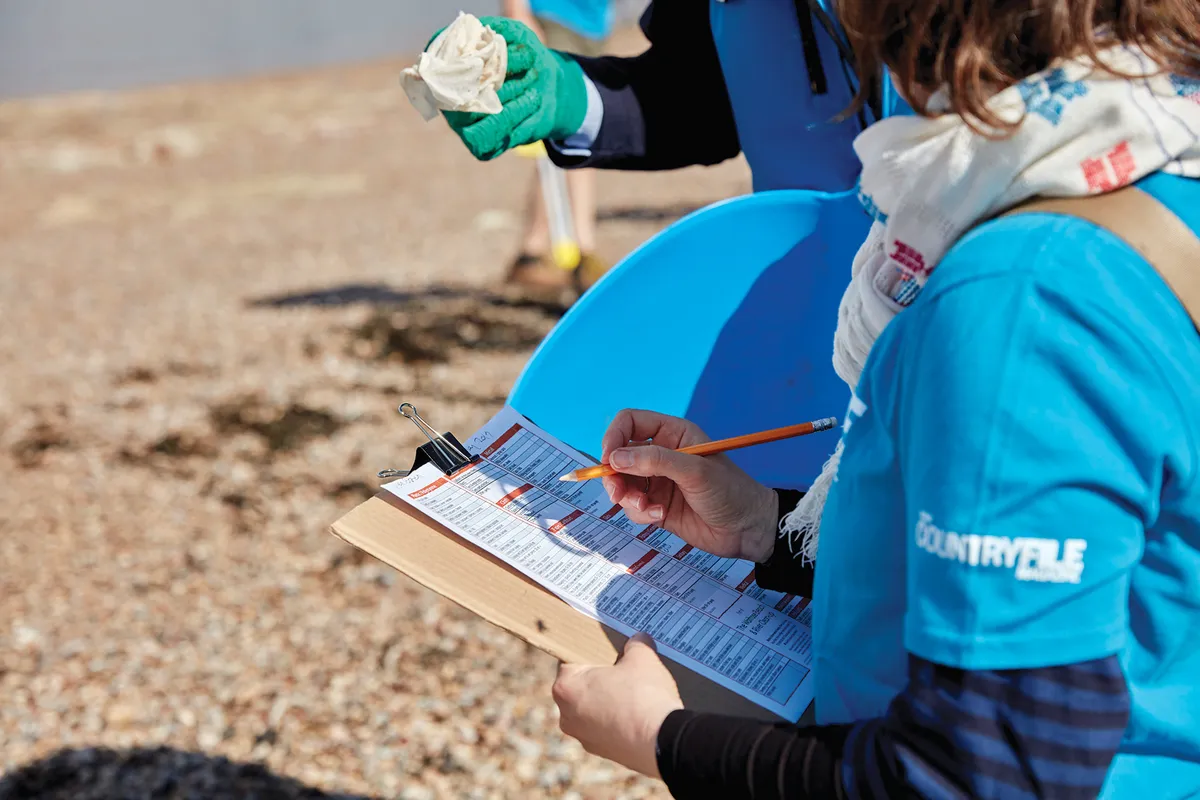
After we’d cleared three small beaches, Fran and Tony from the Trust led us to a skate park on the seafront. This was full of cigarette butts (which have plastic in them), cans, plastic bottles, broken glass and chewing gum. In around 15 minutes, we had completely cleaned it, giving a real sense of achievement.
At the end of about four hours of picking, we all felt we’d had a good workout, plenty of fresh air and even made a few new friends. Better still, we felt we’d given something back to the countryside we love and write about. And we’ll be setting off again to clear up corners of Bristol in the near future.
So if you feel inspired to become part of the litter hero movement, now’s your chance. As Julia says: “It is up to us all to make a change in our lives, and by keeping our footpaths clean and litter-free everyone can do their bit without having to make big changes.”
How to become a litter hero
Sign up to become a #litterhero today and receive your special litter-picking bag for just the cost of postage and packaging (£2.75 mainland UK). The lightweight tote bag is made from 100% natural cotton.

Either follow this link to The Outdoor Guide website: theoutdoorguide.co.uk/product/litterhero
Or send your name, address and a cheque for £2.75 made out to The Outdoor Guide, to: The Outdoor Guide, PO Box 71931, London, NW2 9RA.
Your data will be processed in accordance with their Privacy Policy only for the purpose of posting the bag. theoutdoorguide.co.uk/privacy-policy
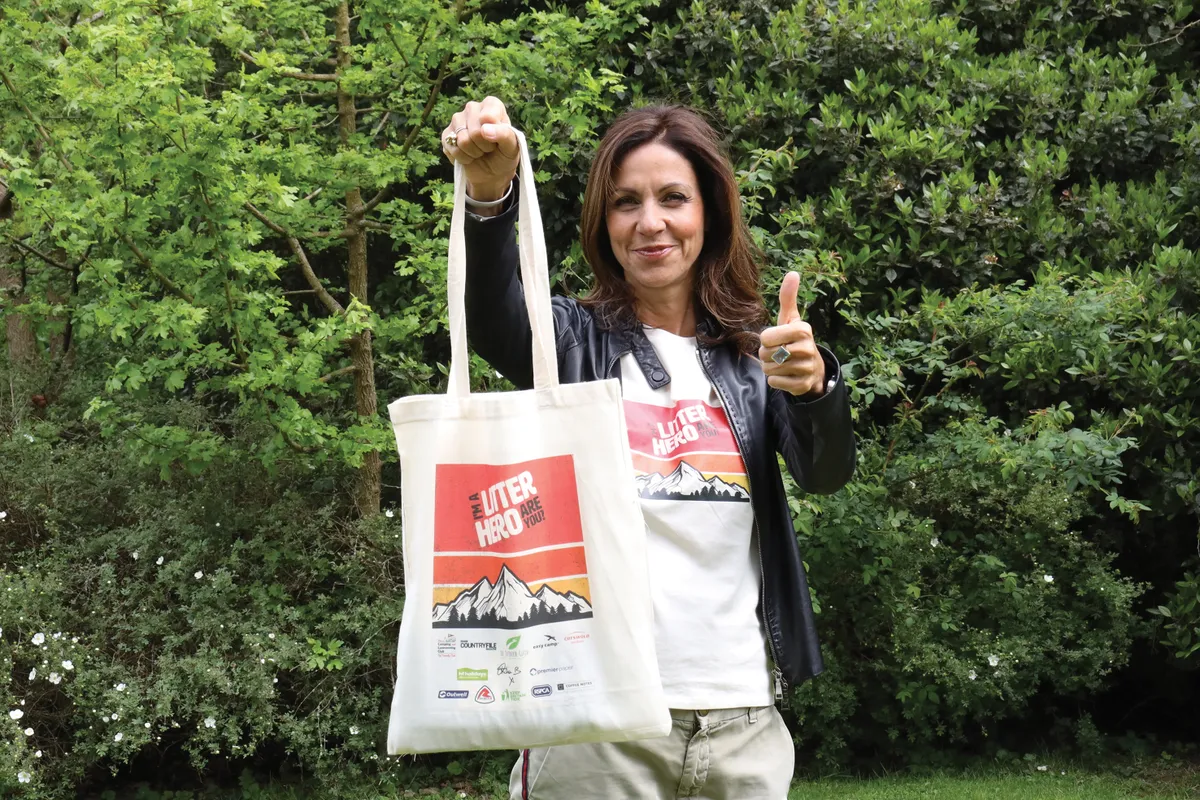
Send us your photos!
We’d love to see litter heroes at work in the countryside. Share your photos on social media using #litterheroes or email images to us at editor@countryfile.com
And tell us about your experiences: when litter-picking, what do you find the most of? What is the weirdest thing you’ve found when litter-picking? Email us at editor@countryfile.com with your pictures and stories and we’ll print the best.
Our litter hero partners
Julia Bradbury; The Outdoor Guide; HF Holidays; Keep Britain Tidy; Camping and Caravanning Club; Outwell, Robens; EasyCamp, RSPCA; Premier Paper Group; Cotswold Outdoor; Coffee Notes
Terms and conditions
This is a campaign organised by The Outdoor Guide. The bags will be sent out by a representative of The Outdoor Guide to all who provide a valid email and mailing address. The order page opens at 12:01am GMT on 20 June 2019. Bags are available to anyone aged 16 or over in the UK. This offer is subject to availability and will only continue while stocks last. The order page will close at 11:59pm on 31 December 2019.
The Companies involved in promoting the campaign and who are passionate about the cause are: Julia Bradbury, BBC Countryfile Magazine, HF Holidays, The Outdoor Guide, Camping and Caravanning Club, Keep Britain Tidy, Premier Paper Group, Outwell, Robens, EasyCamp, Cotswold Outdoor, RSPCA and Coffee Notes.
Only one order per person allowed. Orders will not be accepted via agents, third parties or in bulk. There is no cash alternative.
The Companies are not responsible for contacting or forwarding a bag to customers who provide unclear or incomplete information or for orders lost, misdirected, delayed or destroyed.
Any photos shared on social media using the hashtag #LitterHeroes may be used on the Companies’ websites and social media and in print.
Your email address is not sold to any third party. The email addresses of entrants will only be used for administering the campaign by The Outdoor Guide.
You will be given the option of opting in for marketing emails if you want to receive any promotions and offers from BBC Countryfile Magazine and/or The Outdoor Guide.
